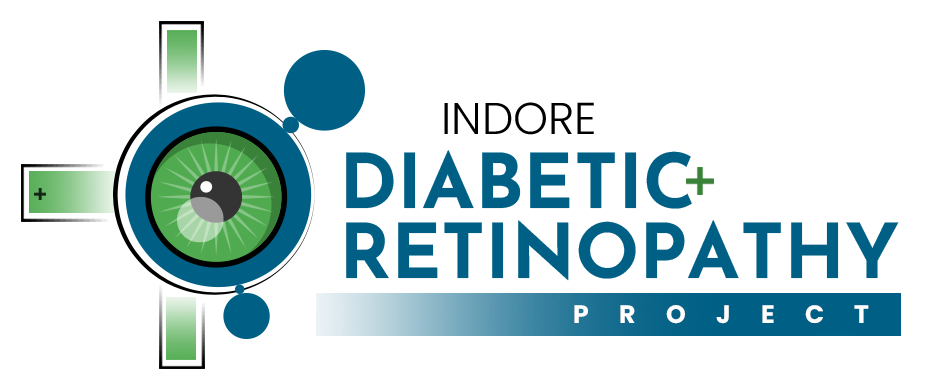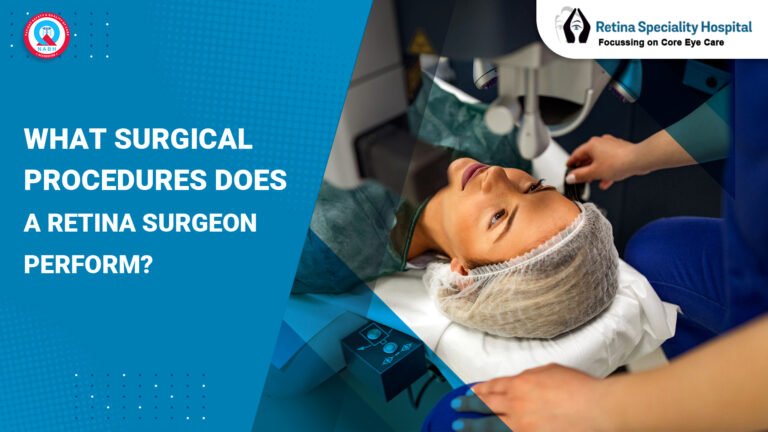Have you ever wondered how to detect the first signs of retinopathy before it causes serious damage to your vision? Retinopathy is a group of eye conditions that affect the retina—the light-sensitive tissue at the back of your eye. If not diagnosed early, it can lead to vision loss or even blindness.
At Retina Speciality Hospital, a trusted eye hospital in Indore, we often meet patients who visit us late—when the condition has already progressed. The good news is that early detection of retinopathy through regular eye check-up hospital near me searches and timely consultation can prevent major complications.
In this blog, we will guide you through:
- The first signs of retinopathy to watch for
- The causes and types of retinopathy
- Why regular eye check-ups are crucial
- Treatment options available at leading eye hospitals like Retina Speciality Hospital in Indore
- FAQs to clear your common doubts
By the end, you’ll know how to protect your vision and what steps to take if you notice early symptoms.
What is Retinopathy?
Retinopathy is damage to the retina, often caused by underlying health conditions such as diabetes, high blood pressure, or premature birth in infants. The retina plays a crucial role in vision by sending signals to the brain. Any damage here can lead to blurred or lost vision.
The condition doesn’t appear suddenly—it develops slowly. That’s why identifying the first signs of retinopathy is essential for timely treatment.
First Signs of Retinopathy You Shouldn’t Ignore
When it comes to eye health, prevention and early detection are key. Let’s look at the common first signs of retinopathy:
1. Blurred Vision
One of the earliest indicators of retinopathy is blurry or distorted vision. If you suddenly find it difficult to focus on words while reading or objects appear hazy, this may be the beginning of retinal damage.
2. Difficulty Seeing at Night
Struggling with night driving or finding it hard to recognize faces in dim light can also signal early retinopathy.
3. Dark Spots or Floaters
Seeing black spots, floaters, or streaks in your vision could indicate bleeding in the retina, a common feature of diabetic retinopathy.
4. Frequent Vision Changes
If your eyeglass prescription changes too often, it might be more than weak eyesight. It could be an early sign of retinal disease.
5. Color Vision Changes
Some people with retinopathy notice that colors don’t appear as bright or sharp as before.
If you notice any of these first signs of retinopathy, don’t delay. Visit an eye check up hospital near me like Retina Speciality Hospital for a detailed retina evaluation.
Types of Retinopathy and Their Early Symptoms
Retinopathy isn’t just one condition—it has different forms. Knowing them helps in understanding the symptoms better.
1. Diabetic Retinopathy
- Cause: High blood sugar damages retinal blood vessels.
- First Signs: Blurred vision, floaters, fluctuating eyesight.
- Who’s at Risk: People with diabetes (both Type 1 and Type 2).
2. Hypertensive Retinopathy
- Cause: Long-term high blood pressure damages retina vessels.
- First Signs: Headaches, double vision, sudden vision loss.
3. Retinopathy of Prematurity (ROP)
- Cause: Seen in premature babies born before 31 weeks or weighing less than 1.5 kg.
- First Signs: White pupils, crossed eyes, poor visual response.
- Where to Get Help: Specialized care at a Retinopathy of Prematurity hospital in Indore, like Retina Speciality Hospital, ensures timely diagnosis and treatment for infants.
4. Radiation Retinopathy
- Cause: Radiation therapy for cancers near the eye.
- First Signs: Vision loss months or years after treatment.
5. Sickle Cell Retinopathy
- Cause: Sickle cell anemia causes retinal vessel blockage.
- First Signs: Floaters, blurred vision, or sudden blindness.
Why Early Detection Matters
Most forms of retinopathy don’t show obvious symptoms in the beginning. By the time vision changes occur, significant damage may already be done. That’s why regular check-ups at an eye hospital in Indore are so important.
Early detection allows:
- Preventing further vision damage
- Access to timely treatments like laser therapy or injections
- Monitoring for related conditions like glaucoma and cataract
- Improving the overall quality of life
Diagnosis: How Eye Hospitals Detect Retinopathy
At Retina Speciality Hospital, we use advanced technology to detect the first signs of retinopathy:
- Dilated Eye Exam: Doctors examine your retina using special eye drops.
- Optical Coherence Tomography (OCT): Creates detailed images of the retina layers.
- Fundus Fluorescein Angiography (FFA): Checks blood flow in retina vessels.
- Ultrasound B-Scan: For patients with cloudy vision or cataracts.
These tests help identify damage even before you notice symptoms.
Treatment Options for Retinopathy
The treatment depends on the type and severity of retinopathy:
1. Lifestyle and Medical Control
- Managing diabetes and blood pressure
- Regular exercise and a balanced diet
- Medications to control sugar and cholesterol
2. Laser Treatment
Laser photocoagulation is used to seal leaking blood vessels in diabetic retinopathy.
3. Injections
Anti-VEGF injections reduce swelling and prevent abnormal vessel growth.
4. Surgery
In advanced cases, vitrectomy surgery may be needed to remove blood or scar tissue.
5. Specialized Care for Infants
Premature babies with ROP are treated with laser therapy or injections to save their vision at specialized centers like Retina Speciality Hospital in Indore.
How to Protect Your Eyes from Retinopathy
Here are some proactive steps you can take:
- Get yearly eye check-ups at a reputed eye hospital in Indore
- Manage blood sugar and blood pressure strictly
- Avoid smoking and alcohol
- Maintain a healthy diet rich in leafy greens, carrots, and omega-3 fatty acids
- Wear protective glasses if exposed to radiation or injuries
FAQ on First Signs of Retinopathy
Q1: Can retinopathy be cured completely?
Not always. Early detection allows treatment to slow or stop progression, but advanced damage may not be reversible.
Q2: How often should I get my eyes checked if I have diabetes?
At least once a year, or more frequently if your doctor recommends.
Q3: What is the cost of retinopathy treatment in Indore?
Costs vary depending on the type of treatment. A consultation at Retina Speciality Hospital provides a clear estimate.
Q4: Is retinopathy only seen in adults?
No. Retinopathy of Prematurity affects infants and needs specialized care.
Q5: Which is the best hospital for retinopathy treatment in Indore?
Retina Speciality Hospital is among the most trusted names, offering advanced diagnostic tools and treatment options.
Conclusion
Retinopathy may sound scary, but early detection and timely treatment can save your sight. The first signs of retinopathy—such as blurred vision, floaters, or frequent vision changes—should never be ignored.
At Retina Speciality Hospital, a leading eye hospital in Indore, we specialize in treating all forms of retinopathy, including care for premature babies at our Retinopathy of Prematurity hospital in Indore.
If you notice any symptoms, don’t wait. Book your consultation today at Retina Speciality Hospital—the best choice when searching for an eye check up hospital near me.












